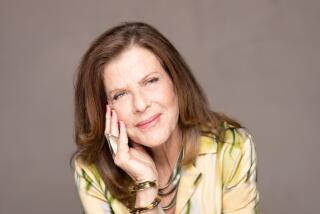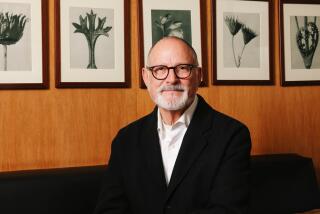ART : Women Slowly Building a Future in Architecture
The Newport Harbor Art Museum cast a worldwide net recently in its search for an architect to design the museum’s new building, but the vast majority of candidates had one thing in common:
They were men.
The names of two or three women cropped up in early phases of the search for an architect to design a proposed new home for the museum on a 10-acre parcel at Coast Highway and MacArthur Boulevard that the Irvine Co. has offered to the museum under a challenge grant.
But no women were among the 41 architects from whom the museum solicited applications, according to Richard Teilinghausen, a Newport staffer who took part in the 18-month process that earlier this month yielded the choice of Italian designer Renzo Piano.
Why, in 1987, with women increasingly active in almost every field, did the museum compile a candidate list that was so overwhelmingly male?
“I don’t think it involves a bias on the part of the museum,” said museum spokeswoman Kathy Bryant. “The problem is that aren’t very many women architects.”
She’s right. Architecture is opening its ranks to women more slowly than some of the other traditionally male-dominated professions.
Statistics complied by the American Institute of Architects show that women currently account for only 7.1% of the group’s membership. By contrast--not a very impressive one--a researcher with the Chicago-based American Bar Foundation estimates that 18% of American lawyers are women. As of last year, 10% of the practicing doctors in the American Medical Assn. were women.
Bryant couldn’t come up with the exact number of women designers who sought the museum assignment, but one of the few was Katherine Diamond, who is in charge of design for the Los Angeles firm of Siegel, Sklarek, Diamond, which has a presence in Orange County via two projects under way at UC Irvine: a social services building and a child care center.
The firm’s three principal executives are women.
Diamond, 33, says she never had much hope of getting the museum project because she assumed from the beginning that the museum was looking for someone with an international reputation. The only woman with such superstar status is Gae Aulenti, who turned Paris’ Beaux Arts train station, Gare d’Orsay, into the Musee d’Orsay. Kevin Consey, the museum’s director, said that museum officials asked Aulenti to submit a proposal but that she never responded.
“Architecture is a surprisingly conservative profession,” said Diamond. “There is this question of whether a client will be willing to give their $10-million project to women. And a lot of the clients tend to be older white males.”
Women have not been as eager to become architects as other types of professionals, she said. “We’re mentioned in the same breath as doctors and lawyers, but when we come out of school, we earn a lot less than they do. We earn around $15,000. . . . The superstars are earning between $100,000 and $200,000, and it’s a lot of hard work. In Los Angeles in this part of the 20th Century, you have to be a superstar to get a museum (assignment), but you have to build up a lot of experience to be a superstar. I think it is still very hard for women to build up that experience.
“I am absolutely convinced that there is a latent discrimination against women architects,” continued the Chicago-born Diamond, who received her degree from the Technion, Israel’s internationally respected equivalent of the Massachusetts Institute of Technology.
“I cannot tell you how many times I have walked into client meetings and seen a table full of men and that glaze in the eye that says, ‘Oh, here’s this nice girl coming to talk to us.’ I know when I see that look that I will have to stay up until 3 a.m. to work on the project and prove I am an exception to the rule they have in their minds about women.”
Diamond said she believes her firm has had a particularly comfortable relationship with UCI because several women represent the university in both projects.
Kathy Baab, 31, a staff architect at UCI who is managing the two buildings, said she also sat on the committee of UCI officials that selected Diamond’s firm for the child care center--a committee she said consisted of three women and four men.
“We liked the fact that (the executives) were all women, but they were hired because we thought they could do a good job,” Baab said.
Still, Baab said that as more women become part of the screening process for corporate and university projects, more women will get such projects--and will eventually receive highly coveted assignments to design museums.
And more women are starting to enter the field. An AIA spokeswoman said that 28% of the architecture students in graduate and undergraduate programs currently are women, contrasted with about 15% a decade ago.
“We are slowly being accepted,” said Diamond. “It’s not at the point yet where I can hope to get a project that went to Renzo Piano, but I like to think that it is going to happen.”
More to Read
The biggest entertainment stories
Get our big stories about Hollywood, film, television, music, arts, culture and more right in your inbox as soon as they publish.
You may occasionally receive promotional content from the Los Angeles Times.










